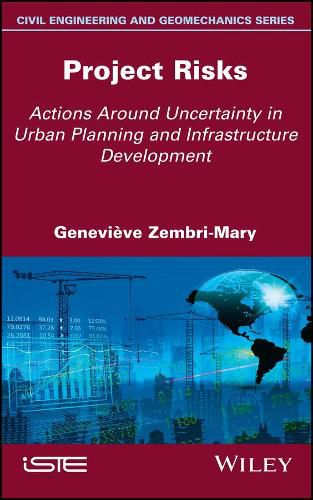Readings Newsletter
Become a Readings Member to make your shopping experience even easier.
Sign in or sign up for free!
You’re not far away from qualifying for FREE standard shipping within Australia
You’ve qualified for FREE standard shipping within Australia
The cart is loading…






Those tasked with the planning and construction of infrastructure and development operations face an increasingly uncertain context in which they must address risks across a number of different fields. These range from the environmental and archaeological to the social, political and financial. As a consequence, the formal and informal practices of stakeholders often incorporate projections of risk and opportunity.
Project Risks analyzes this paradigm shift. It reviews the origin and nature of these uncertainties, and the practices implemented by the actors to mitigate or take advantage of them. Paradoxically, these practices generate new risks and power relations that are not compatible with the collaborative planning model. These paradoxes force the rethinking of practices such as project territorialization, risk taking in planning and the responsibility of actors, as well as the societal and political choices that must be made between the realization of projects and the protection of the environment.
$9.00 standard shipping within Australia
FREE standard shipping within Australia for orders over $100.00
Express & International shipping calculated at checkout
Those tasked with the planning and construction of infrastructure and development operations face an increasingly uncertain context in which they must address risks across a number of different fields. These range from the environmental and archaeological to the social, political and financial. As a consequence, the formal and informal practices of stakeholders often incorporate projections of risk and opportunity.
Project Risks analyzes this paradigm shift. It reviews the origin and nature of these uncertainties, and the practices implemented by the actors to mitigate or take advantage of them. Paradoxically, these practices generate new risks and power relations that are not compatible with the collaborative planning model. These paradoxes force the rethinking of practices such as project territorialization, risk taking in planning and the responsibility of actors, as well as the societal and political choices that must be made between the realization of projects and the protection of the environment.